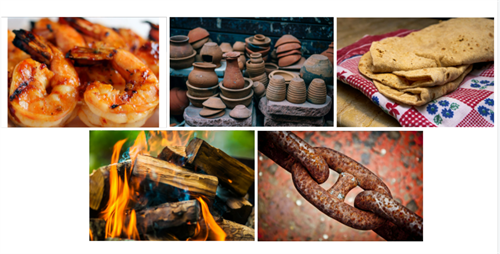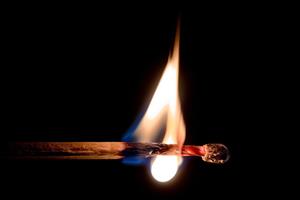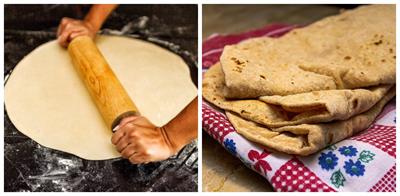
PUMPA - SMART LEARNING
எங்கள் ஆசிரியர்களுடன் 1-ஆன்-1 ஆலோசனை நேரத்தைப் பெறுங்கள். டாப்பர் ஆவதற்கு நாங்கள் பயிற்சி அளிப்போம்
Book Free DemoChemical changes:
Any substance that changes its chemical properties is known as chemical change. A new substance is formed in this change, and these changes are irreversible (i.e. they cannot be brought back to their original form) in nature. These are also known as permanent changes.

Chemical changes
- Burning of a candle
- Rusting of iron
- Burning of paper
- Formation of curd from milk
- Cooking food
Example:
1. Burning of matchstick: When the matchstick is burned, it turns into ashes when it undergoes complete combustion. The ashes have an entirely new chemical composition than that of the unburnt matchstick.

Burning of matchstick
2. Baking a roti: When the dough is baked into a roti, it cannot be changed into a dough again. These changes cannot be reversed.

Baking of roti
Let us now see the difference between physical and chemical changes:
Physical change | Chemical change |
| No newsubstance is formed | A new substance is formed. |
| The chemical composition of the substance remains the same. | The chemical composition of the substance changes. |
| These changes are reversible. | These changes are irreversible. |
| These are also known as temporary changes. | These are also known as permanent changes. |